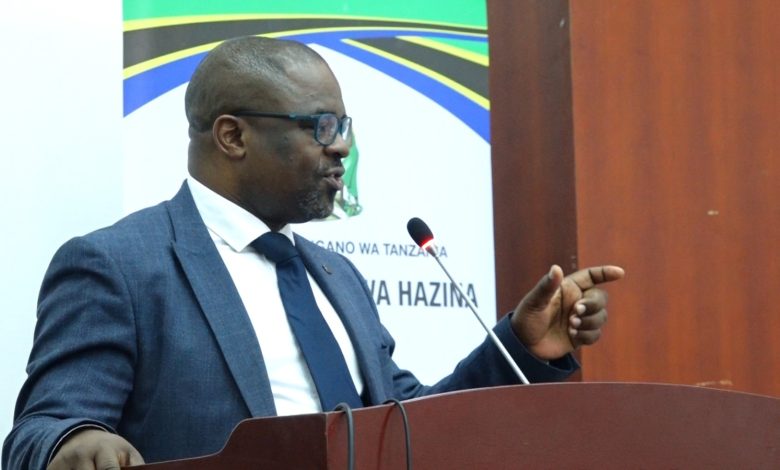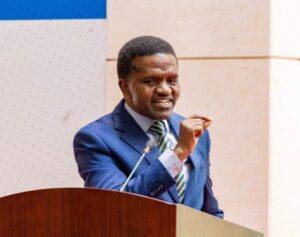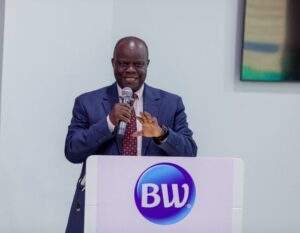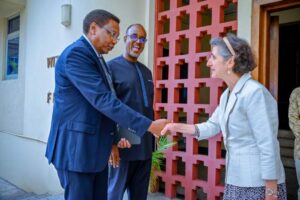By Peter Nyanje
When Nehemia Mchechu was appointed Treasury Registrar in early 2023, few anticipated the sweeping reforms he would lead across Tanzania’s vast network of public institutions.
Known for his private sector efficiency and strategic leadership – particularly during his tenure at the National Housing Corporation (NHC) – Mchechu entered public finance administration with a bold vision: to overhaul the Office of the Treasury Registrar (OTR) into a performance-driven institution and reposition public entities as engines of national development.
Rebuilding systems, reclaiming accountability
Briefing editors in Dar es Salaam today, Mchechu showed how his painstaking efforts have started to pay off.
Not only has the TR office transformed, but also public institutions which fall under the OTR watch.
At the heart of Mchechu’s reforms is a major restructuring of financial oversight systems.
Under his leadership, the OTR launched a comprehensive digitization program, introducing the Government Ownership Management Information System (GOMIS), which now tracks ownership, dividends and governance across over 300 public entities under TR watch.
This move alone has significantly improved transparency and reduced leakage of public revenues.
Before Mchechu’s appointment, many public corporations operated with limited accountability.
By auditing ownership structures and reasserting government interests in strategic companies, the OTR – under Mchechu – has reclaimed billions in unpaid dividends and idle equity.
For instance, a few years back in 30 enterprises which in which the government had minority shareholding, it collected an average of TSh54 billion in dividends but last year only 17 firms in which the government has minor shares, the contributed about TSh185 billion in dividends.
“You can see here that the number of institutions has almost halved but the collections have gone up almost four times. This is because we have managed to improve efficiency of the institutions,” says Mchechu when he met editors in Dar es Salaam.
In 2023 alone, the government collected over TSh600 billion in dividends, a historic record that reflects the impact of these reforms.
Performance contracts and strategic oversight
To ensure that public institutions deliver measurable value, Mchechu introduced performance contracts between the OTR and the boards of directors of public entities.
These contracts include targets for revenue generation, service delivery, and cost control.
The OTR now evaluates these institutions frequently, tying leadership tenure to institutional performance.
This has compelled previously underperforming entities to rethink their strategic plans and adopt more business-like approaches.
“We’re not just managing assets; we’re building a performance culture,” Mchechu stated during a recent media briefing. “Every shilling invested by the government must produce tangible results for Tanzanians.”
Unlocking investment value
Another pillar of Mchechu’s strategy is unlocking the investment potential of government-owned assets.
He has championed reforms to convert dormant or underutilised assets into productive ventures.
This includes leasing public buildings, restructuring loss-making companies, and attracting private partnerships.
For example, through collaborative efforts with the Tanzania Investment Centre (TIC) and Ministry of Finance, the OTR is now finalising frameworks to list certain profitable state-owned enterprises on the Dar es Salaam Stock Exchange (DSE), boosting capital markets and democratizing public ownership.
Strengthening corporate governance
Mchechu has also prioritised governance reforms by revamping how board members are appointed and trained. Under his watch, the OTR has institutionalised board inductions, leadership benchmarking, and compliance auditing.
“We started the system of appointing board members basing on merit. But due to some hitches we have suspended the approach but we will resume after ironing our some hitches,” he said.
Entities with overlapping mandates are being streamlined, or joined and non-performing boards are being dissolved entirely.
This new wave of discipline and professionalism is already bearing fruit.
Several institutions, including the Tanzania Telecommunications Company Limited (TTCL) and the Tanzania Petroleum Development Corporation (TPDC), have reported improved operational efficiency and earnings.
Restoring public confidence
Beyond the structural gains, Mchechu’s reforms are restoring public trust in the government’s stewardship of national assets.
Civil society, parliamentarians, and the private sector have lauded the OTR’s new visibility, transparency, and assertiveness.
With President Samia Suluhu Hassan backing institutional reforms across government, Mchechu’s office has become a critical node in Tanzania’s broader agenda to modernize public administration and boost domestic resource mobilisation.
As Nehemia Mchechu often remarks, “We are custodians of national wealth – not just to preserve it, but to multiply it for future generations.”
And under his stewardship, the Treasury Registrar’s Office is doing just that.









